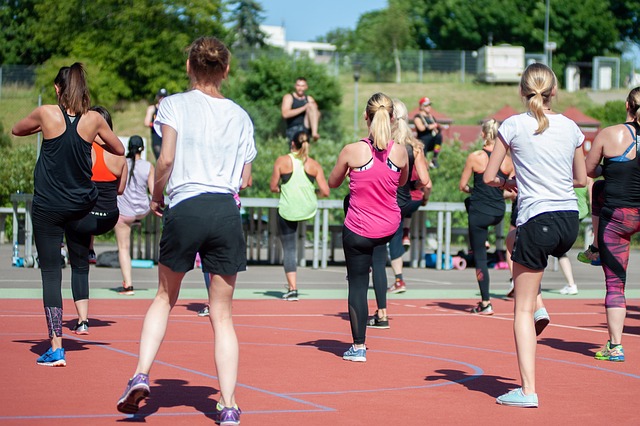Exploring the Significance of Regular Exercise for Well-being
In today’s world, where many of us spend a lot of time sitting down, it’s super important to talk about exercise. It’s not just about looking good; it’s about feeling great and staying healthy. Let’s dive into why regular exercise is so awesome and how it can make our lives better.
Getting Fit and Strong
First off, exercise helps us get fit and strong. When we move our bodies regularly, whether it’s jogging, lifting weights, or stretching, our muscles get stronger, and our hearts get healthier. That means we have more energy for all the fun stuff we want to do.
Staying at a Healthy Weight
Exercise also helps us stay at a healthy weight. When we work out, we burn calories, which can help us lose any extra weight we might be carrying around. Plus, it keeps our metabolism in check, which means our bodies are better at using the food we eat for energy.
Keeping Away Sickness
Another great thing about exercise is that it helps us stay healthy. Regular physical activity can lower our risk of getting sick with things like heart disease, diabetes, and even some types of cancer. It’s like giving our immune system a little boost to help us fight off germs.
Feeling Happy and Less Stressed
Exercise isn’t just good for our bodies; it’s good for our minds too. When we work out, our brains release chemicals called endorphins that make us feel happy and relaxed. So, if you’re feeling stressed or down, a quick workout might be just the thing to lift your spirits.

Sleeping Better and Feeling More Energized
Did you know that exercise can also help us sleep better? When we’re active during the day, it can help us fall asleep faster and have a deeper, more restful sleep at night. And when we wake up, we feel more energized and ready to tackle the day.
Making Friends and Having Fun
Exercise isn’t just about hitting the gym by ourselves. Moreover, it presents an excellent opportunity to forge new friendships and enjoy leisure activities. Whether it’s joining a sports team or going for a hike with friends, exercising together can be a blast. Plus, having workout buddies can help keep us motivated and accountable.
Tips for Adding Exercise to Your Routine
Now that we know how awesome exercise is, how can we make it a regular part of our lives? Here are some simple tips to help you get started:
1. Start Small:
Avoid the temptation to push yourself too hard or take on too much too quickly. Start with just a few minutes of exercise each day and gradually increase as you feel more comfortable.
2. Find What You Love:
Try different activities until you find something you enjoy. Whether it’s dancing, swimming, or playing basketball, the key is to have fun while you’re moving.
3. Make a Schedule:
Treat exercise like any other appointment and put it on your calendar. This approach increases the likelihood of maintaining consistency and adherence to your exercise routine.
4. Mix It Up:
Variety is key; refrain from repeating the same exercise regimen daily. Mix things up to keep it interesting and challenge your body in new ways.
5. Get Social:
Invite friends or family to join you for workouts. Exercising together can make it more fun and help you stay motivated.
6. Be Consistent:
Aim to exercise regularly, even if it’s just for a few minutes each day. Consistency is key to seeing results.
7. Listen to Your Body:
Listen to your body's signals and avoid overexertion by being mindful of your physical limits. It’s important to rest and recover when you need to.
8. Celebrate Your Progress:
Always acknowledge and celebrate your accomplishments, regardless of their size. Each exercise session represents progress in the right direction towards your fitness goals.
In Conclusion
Exercise is one of the best things we can do for our bodies and minds. It helps us get fit, stay healthy, and feel happy. So, let’s lace up our sneakers, get moving, and enjoy all the amazing benefits that exercise has to offer.

Frequently Asked Questions (FAQ) About Exercise and Its Benefits
1. Why is exercise important?
Regular exercise is crucial because it contributes to our overall well-being by enhancing both physical fitness and mental health. It aids in strengthening our bodies, uplifting our moods, and reducing the risk of various health conditions.
2. What types of exercise should I do?
There is a wide array of exercises to choose from, including cardiovascular activities like running or cycling, strength training exercises like weightlifting, flexibility routines like yoga or stretching, and recreational sports such as basketball or soccer. It's important to explore different options to find activities that resonate with you and align with your fitness goals and capabilities.
3. How often should I exercise?
Experts recommend aiming for at least 150 minutes of moderate-intensity exercise or 75 minutes of vigorous-intensity exercise each week, supplemented with muscle-strengthening activities on two or more days. However, any amount of physical activity is beneficial, so start at a pace that suits you and gradually increase your activity level over time.
4. Can exercise help with weight loss?
Absolutely. Exercise plays a significant role in weight loss by burning calories and revving up metabolism. When combined with a balanced diet, regular exercise can support healthy weight management and contribute to achieving weight loss goals.
5. What are the mental health benefits of exercise?
Exercise offers numerous mental health benefits, including stress reduction, mood improvement, enhanced self-esteem, and better sleep quality. The release of endorphins during exercise creates feelings of happiness and relaxation, promoting overall well-being.

6. How can I make exercise a regular part of my routine?
To establish exercise as a consistent habit, start with manageable goals, find activities you genuinely enjoy, schedule workouts in advance, diversify your routine, enlist social support, maintain consistency, listen to your body's cues, and celebrate your progress along the way.
7. Can I exercise if I have a busy schedule?
Yes, it's possible to incorporate exercise into a busy schedule by integrating physical activity into daily routines. This can include opting for stairs over elevators, walking or biking to work, or squeezing in short workouts during breaks. Flexibility and creativity are key to fitting exercise into hectic lifestyles.
8. Are there any age restrictions for exercise?
Exercise is beneficial for individuals of all ages, from children to seniors. However, it's essential to choose activities suitable for your age and physical condition. Seeking advice from a healthcare professional ensures personalized guidance that addresses your individual needs and situation.
9. How can I stay motivated to exercise?
Maintaining motivation for exercise can be challenging, but setting realistic goals, tracking progress, seeking support from peers or groups, varying workouts, rewarding achievements, and focusing on the positive impacts of exercise can all bolster motivation and commitment to fitness goals.
10. What if I don't enjoy exercise?
If traditional forms of exercise don't appeal to you, don't despair. There are countless alternative activities that promote physical activity and health, such as dancing, gardening, hiking, swimming, or engaging in recreational sports. The key is to find activities that bring you joy and align with your interests, making it more likely for you to stick with them long-term.
Powered by Froala Editor





Leave a Reply